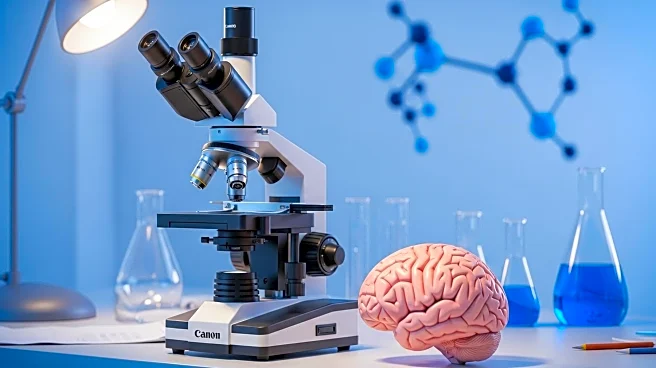What's Happening?
MLAB Biosciences, a biotechnology company focused on neuromuscular disease therapies, has announced the appointment of Kathryn R. Wagner, M.D., Ph.D., and Peter B. Kang, M.D., to its Scientific Advisory Board. These appointments bring significant expertise in drug development, translational medicine, and clinical care in neuromuscular disease. Dr. Wagner is a renowned neuromuscular physician-scientist with leadership roles at Roche and Novartis, while Dr. Kang is a leader in genetic discovery and translational research in muscular dystrophy. MLAB's lead program, MLAB-001, aims to promote muscle regeneration through a novel approach.
Why It's Important?
The expansion of MLAB Biosciences' Scientific Advisory Board enhances the company's ability to develop innovative therapies for neuromuscular diseases, addressing significant unmet medical needs. The expertise of Drs. Wagner and Kang strengthens MLAB's research and development efforts, potentially accelerating the translation of scientific discoveries into clinical applications. As neuromuscular diseases such as Duchenne muscular dystrophy and spinal muscular atrophy affect many patients, advancements in treatment options could improve quality of life and patient outcomes.
What's Next?
MLAB Biosciences will continue to advance its lead program, MLAB-001, towards clinical trials, guided by the expertise of its Scientific Advisory Board. The company aims to develop a pipeline of transformative therapies for neuromuscular diseases, leveraging its innovative approach to muscle regeneration. Stakeholders, including patients and healthcare providers, will be closely monitoring the progress of these therapies, which could significantly impact the treatment landscape for neuromuscular conditions.
Beyond the Headlines
The appointments highlight the importance of interdisciplinary collaboration in biotechnology, combining academic research with industry expertise to drive innovation. MLAB's focus on muscle regeneration represents a shift towards targeted therapies that address specific biological pathways, offering potential benefits beyond neuromuscular diseases. This approach may pave the way for advancements in treating other musculoskeletal conditions.











